
Brigitte Mira
출생 : 1910-04-20, Hamburg, Germany
사망 : 2005-03-08
약력
From Wikipedia, the free encyclopedia.
Brigitte Mira (20 April 1910 – 8 March 2005) was a German actress. She worked in both theater and film, often with Rainer Werner Fassbinder.
Brigitte Mira's mother was German and her father was Jewish Russian. During the Nazi dictatorship, Mira took part in the propaganda series Liese und Miese. She played Miese (germ. bad one)--the bad role model according to Nazi ideology that listened to enemy radio stations and stockpiled rationed food. But her acting skills turned the "bad" character she portrayed into a likeable one. The series was soon cancelled for being counter productive. The propaganda directors did not know that Mira was half-Jewish. Even though she insisted on her naivete as a young woman and the fact she had to hide her identity, she was criticized later by some for taking part in these ads at all.
Even if Mira was born in Hamburg she early on moved to Berlin and through her TV work came to embody the typical Berlin sense of humor.
Notable performances include Emmi Kurowski in Fear Eats the Soul (1974), a role for which she won a German Film Award. In the 1980s Mira achieved another big success with the television series Drei Damen vom Grill.
Description above from the Wikipedia article Brigitte Mira, licensed under CC-BY-SA, full list of contributors on Wikipedia.
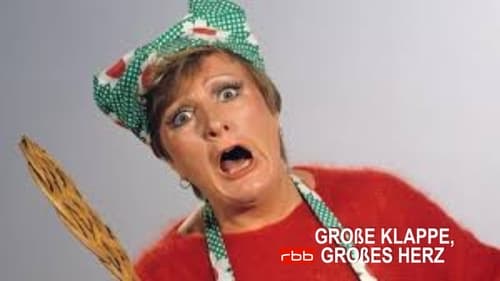
Gast

Emmi Kurowski (archive footage)
Mixing scenes of Douglas Sirk's All That Heaven Allows and Fassbinder's Ali: Fear Eats the Soul, François Ozon creates a new film about cinephilic contamination.

herself

Emmi
Shot with striking immediacy by a subjective camera, “Angst isst Seele auf” assumes the point of view of a black actor in Germany dealing with racist abuse as he prepares to appear in a play based on Fassbinder’s film, about the taboo relationship between an older German woman and an Arab man. Sharing the same lead actress (Brigitte Mira), cinematographer (Jürgen Jürges), and editor (Thea Eymèsz) as in Rainer Werner Fassbinder’s 1974 Film “Angst essen Seele auf”, these twin works offer a searing indictment of prejudice within German society.
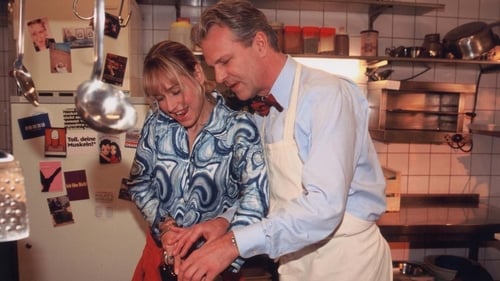
Olga von Reichenbach
The Berlin Observatory is facing the financial end. Against the will of the renowned physicist Robert von Reichenbach, the astrologer Lena Moosbach is set, which quickly establishes itself as a crowd puller and fills the empty cash registers of the planetarium. Worried about the scientific reputation of the observatory, Robert spat first poison and bile against the new colleague. But although the sober astronomer rejects horoscopes with the deepest conviction, he falls in love with the charming astrologer. However, when it turns out that she just feigned her Ph.D., Robert feels betrayed

Herself
An essay film in which filmmaker Rosa von Praunheim interviews "the willing victims of Rainer Werner Fassbinder."

Käthe Mühlmann

Self
"It must schwing!" was the motto of Alfred Lion and Francis Wolff, two German Jewish immigrants who in 1939 set up Blue Note Records, the jazz label that was home to such greats as Miles Davis, John Coltrane, Herbie Hancock, Thelonious Monk, Art Blakey, Dexter Gordon and Sonny Rollins. Blue Note, the most successful movie ever made about jazz, is a testimony to the passion and vision of these two men and certainly swings like the propulsive sounds that made their label so famous.

Mieterin
Once upon a time very much alike the twenties in Germany, a little town is frightened to death by an uncaught child murderer. Since somebody has to be blamed the townspeople turn against an inconspicious policeman, a family-man who becomes suspected of the crime and therefore loses his job. Strangely enough, the only work he can find is to distribute candy on children, dressed up as clown. When a bunch of kiddies, including his own son who doesn't recognize the father due to the masquerade, plays a nasty trick to him, things turn really ugly...

Queen Mum
The British parliament has decided to get rid of the royal family. All of them have to leave the county and so they move to Germany, where they want to live by their distant relatives, the Bettenberg family. But these are not amused about their snobbish visitors, which all want to reside in their little house without doing any work to earn their living.

Frau im 'House of Usher'

Doris

Frau 1

Mrs. Blondell

Old Lou

Oma Kaminski

A crime comedy directed by Franz Josef Gottlieb.

Mrs. Kluge
A comedy directed by Franz Josef Gottlieb.

Vicky Fendrich
A movie directed by Franz Josef Gottlieb.

Mrs. Pecari

Barfrau Erna

Toilettenfrau
An East Berlin woman falls in love with a Swiss cook.

Gemüsefrau

Mrs. Niendorf
A comedy directed by Wolf Gremm.

Frau Willmsen

Frau Meyerdierks

Frau Friedrichs

Berta
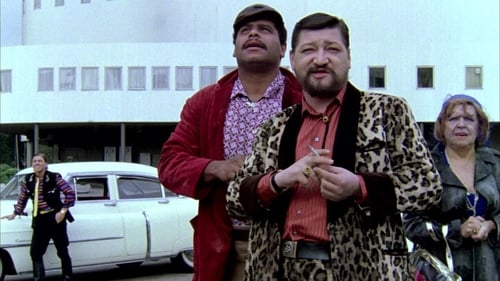
Personaldirektorin
In a totalitarian society of the future, in which the government controls all facets of the media, a homicide detective investigates a string of bombings, and finds out more than he bargained for.

Helen Hobart

Gerti

Garderobiere

Martha

Frau Mürbes
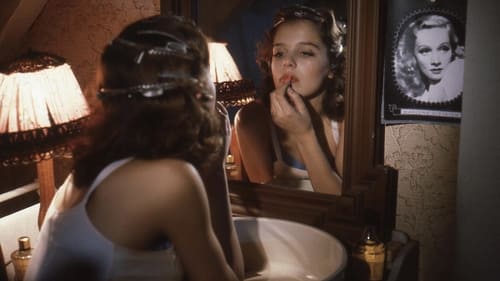
Denunziantin
The Political drama shows the denunciation and persecution of the 19-year-old Sanne in the Nazi state. After she falls in love with her cousin, Sanne is betrayed by her jealous aunt to the Gestapo.
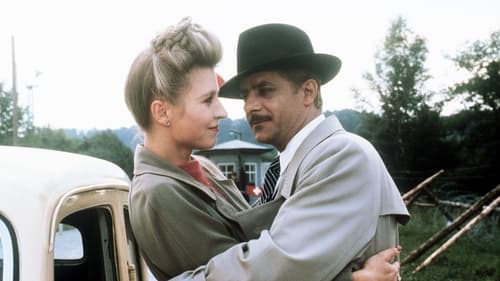
Nachbarin
1938년 취리히. 독일인 빌키는 술집에서 일하고 있다. 빌키는 스위스인 음악가 로베르트 멘델스존을 사랑하게 된다. 아들이 독일인과 관계하는 것을 반대한 로베르토의 아버지는 빌키가 스위스로 돌아오지 못하도록 할 수 있었다. 빌키는 일에서는 운이 좋았다. 그녀가 전에 취입했던 음반이 인기를 얻게 되며 스타가 된다. 그 와중에 빌키는 나찌의 비밀경찰과 엮이지만 결국에는 전쟁에서 살아 남는다. 하지만 로베르토는 결혼해서 행복하게 살고 있다.

Frau Hohfeld
Fabian is a 1980 West German film directed by Wolf Gremm. It is based on the novel Fabian, the Story of a Moralist (1931) by German author Erich Kästner. The film was chosen as West Germany's official submission to the 53rd Academy Awards for Best Foreign Language Film receive a nomination.

Frau Kulicke

Wanda Staudinger

Simons Mutter
A middle-aged man's doubts about himself transform themselves into paranoia about his younger wife's behavior in this psychological thriller. The husband plants listening devices around their apartment and eventually drives the heretofore innocent woman into the arms of one of his co-workers.

Minni - Tante Germinats

Mutter Link

Meg

When Hitler watches Marlene Dietrich in a movie, he falls in love with her. He persuades her to come back to Germany to be with him, but upon her arrival she constantly insults and provokes him until he eventually, on her command, bites the carpet to bits.

Hauswartfrau
The gentle inhabitants of a quaint Berlin apartment house, damaged by the Second World War but possessing an elegance of its own, love the place where they live, with its motto Liebe das Leben-Lebe das Lieben (Love Living, Live Loving) emblazoned above the door. Their love for it only increases when they learn that it is threatened by a bank redevelopment project. Among the apartment-dwellers are an elderly couple (Brigitte Mira and Erhardt Dhein) who have toured the world together.

Kast
사업가인 크리스트와 그의 부인은 각자 애인을 동반하고 여행을 떠나지만 시골 별장에서 마주친다. 몸이 불편하지만 아주 영리한 딸 안젤라는 부모의 계획을 꿰뚫어보고 가정교사와 함께 별장으로 가는데, 별장에는 가정부 카스트와 그녀의 아들 가브리엘이 있다. 안젤라는 별장의 사람들에게 살인적인 진실게임인 중국식 룰렛을 제안하고, 게임이 진행됨에 따라 모든 이들은 죄어오는 긴장과 위기감을 느끼게 된다.
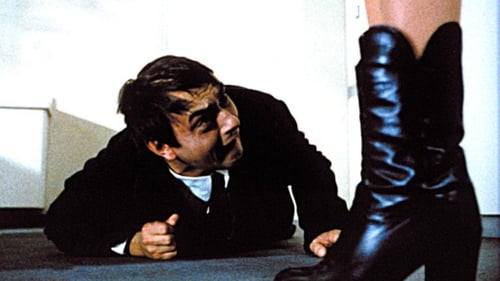
Walters Mutter
파스빈더가 “어쩌면 내 자신의 모습이지만 그럴 것 같지는 않은 내 자신에 관한 코미디”라고 평한 이 영화는 작가로서의 정체성이 흔들리는 시인 발터 크란츠의 우스꽝스러운 이야기이다. 파스빈더의 영화 중 가장 폭로적인 작품이다.

Oma Wuttke
Directed by Alfred Vohrer, and written by Jürgen Lodemann and Werner P. Zibaso, «Anita Drogemöller und die Ruhe an der Ruhr» is a 1976 Crime film . Monique van de Ven and Harald Leipnitz are starring, alongside Helga Anders, Reiner Schöne, Brigitte Mira and Dirk Dautzenberg.

Frau Häberle
When they start losing family members and neighbors due to WWII and the Nazi government's policies, a quiet married couple becomes disillusioned and begins spreading leaflets against the government - a crime punishable by death.
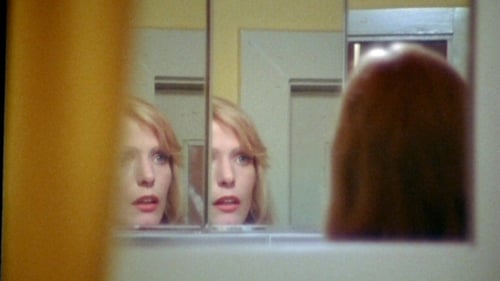
Mutter
After having her second child, a German housewife suffers from post-partum depression before inexplicably falling into a continually misdiagnosed mental state, befuddling her relatives.
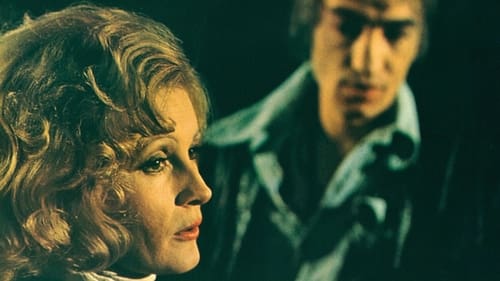
Emma Küsters
엠마 퀴스터는 프랑크푸르트 타이어 공장에서 일하던 남편 헤르만이 대량해고의 위협에 시달리다 현장주임을 쏘고 자살했다는 소식을 듣는다. 엠마는 딸과 사위에게 도움을 청하지만 두 사람은 자신들의 잇속을 챙기기에만 바쁘고, 공산당 기관지의 기자 틸만을 만나 공산당에 가입하지만 그들 역시 별다른 도움이 되지 못한다. 결국 엠마는 극단적인 행동을 취하게 되는데...

Betty Hopfen
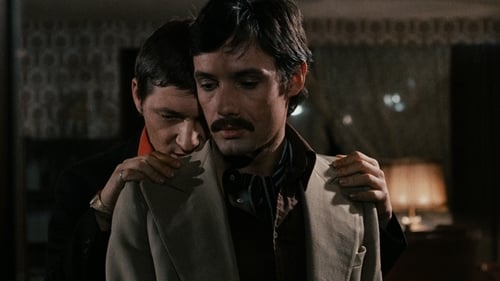
Shopkeeper #2
프란츠는 동성연애자인 오이겐(Eugen)을 알게 되고 사랑하게 된다. 프란츠는 복권으로 큰돈을 벌어서 오이겐 부모의 다 망해 가는 인쇄소에 돈을 댄다. 계급 차이는 돈만으로는 해결되지 않는다. 프란츠는 여전히 이용당하지만 알지 못하고 돈이 다 떨어지고 오이겐의 관심이 없어질 때까지 사랑을 믿는다. 결국 프란츠는 모든 것을 잃고 자살을 한다. 한 지하철역에서 두 명의 소년이 그를 발견한다. 두 소년은 주검에서 마지막 있던 돈마저 훔친다.

Herself
A pseudo variety show about the Aufbau-Era, the time of the German 'economic miracle'. Brigitte Mira recounts her four husbands through song and joke, on an series of artificial sets.

Gloria Miranda

Haushälterin Käthe
남루한 행색의 소년이 어두운 동굴에서 홀로 지낸다. 어느 날, 검은 옷을 입은 남자가 소년을 밖으로 데리고 나간다. 말은 물론, 잘 걷지도 못하는 소년은 편지 한 장을 든 채 마을 한복판에 서 있게 된다. 소년의 이름은 카스파르 하우저. 사람들은 하우저에게 관심을 보이지만, 소년은 그저 호기심과 조롱의 대상일 뿐이다. 한 교수가 하우저를 데려가 교육시키려 하는데, 어느 날, 하우저가 괴한의 공격을 받고 만다. 실제로 1928년 뉘른베르크에 나타나 세간의 관심과 논란을 불러일으켰던 소년 카스파르 하우저의 이야기를 그렸다. 배우가 아닌 거리의 악사였던 브루노 S.의 실제를 방불케 하는 연기가 깊은 인상을 남긴다. * 1975 칸영화제 심사위원대상 등 3개 부문
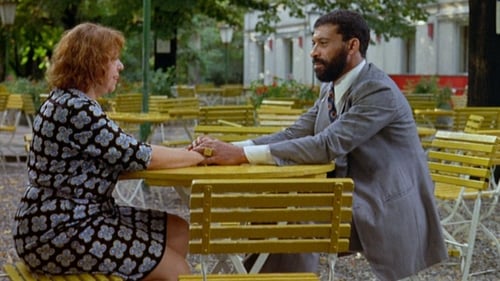
Emmi Kurowski
에미는 사랑했던 남편의 장례식을 치룬 날, 자기보다 10살이 연하인 아랍계 외국인 노동자인 알리와 사랑을 나눈다. 에미는 그를 오랫동안 사랑했었다. 에미가 알리와의 재혼을 결정했을 때, 모든 사람들이 다 반대했다. 그러나 사람들이 좀 진정되고 나자 에미와 알리는 자신들의 관계에 대해 회의에 빠진다.

An African-American GI retires from the US Army in West Berlin to live with his (white) girlfriend, who already has a baby with another black man. After an argument with her family, she deserts him as well. Despite finding a job and a new place to live, he keeps running into racism, which also manifests itself in sexual intimidation.
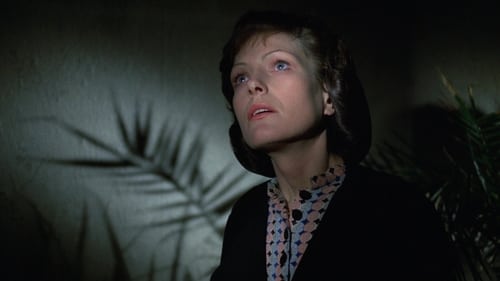
Louise Engel
A German serial killer preys on boys and young men during the so-called years of crisis between the wars. Based on the true story of Fritz Haarmann, aka the Butcher of Hanover and the Vampire of Hanover.

Frau Löffler

Frau Schmolke

Hauswirtin Bauer

Wirtin

Mrs. Scholler

Rose Schuh
West German crime film directed by Rolf Olsen and starring Curd Jürgens, Andrea Rau and Corny Collins. It is set in the red-light district of St. Pauli in Hamburg.

Tante Wilhelmine
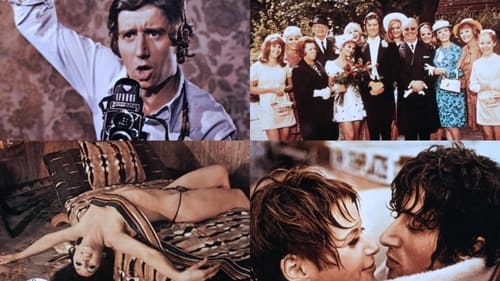
Mrs. Bütow

Molly Zwitscherini

Erste Amme

Molly Zwitscherini

Sängerin

Dolly Tate

Frau Pusebach

Thea
Saleswoman Jenny is crazy about the painter Jack. But Jack does not want to marry, even though he loves Jenny passionately. So Jenny looks elsewhere to find the right man. She marries twice, but always ends up back with Jack and gives herself to him with no attachments. Will Jack and Jenny find true love? Of course!

Madame Helene

Köchin

Frau Sommer

Mama

Frau Ohl
Cautionary drama, with vigorous attack on Germany's laws governing abortion.

Clementine Duquenoy

Mechthilde von Kiefernspeck
1838: Fritz Jüterbog and Ottilie von Henkeshofen love each other, but the difference in status is too great for Ottilie's parents to give their consent to a marriage. And so Fritz sets off for America and returns from there 20 years later as a made man to ask for Ottilie's hand in marriage again. In the meantime, however, Ottilie - believing that Fritz had long since forgotten her - is married in a manner befitting her status, but very unhappily. Fritz, who is highly successful as an entrepreneur, is elevated to hereditary nobility because of his great services to the fatherland. It is too late for a union with Ottilie, but despite the years that pass, the two cannot forget their love. 75 years later, Fritz and Ottilie have died in the meantime, their grandchildren Fred and Tilla meet and fall in love.

Mutter Reitner, Strafgefangene

Marie Ducrot

Lady Schocker, Journalistin

Madame Dupont

Frau Hinze

Sophia

Madame Pillar

Tante Theresa
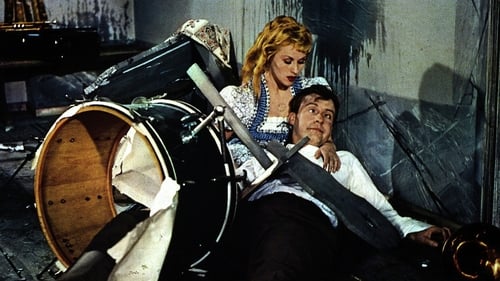
Frau Knax

Frau Mertens
The chorus girl Caterina Duval gets the chance of her life when hired as stand-in of a famous star. On the opening night Catarina is singing, dancing and stepping into the hearts of the audience.

Dirne
Long before he played the corpulent Goldfinger, German actor Gert Froebe was a scarecrow-skinny comedian. In Berliner Ballade, Froebe makes his screen debut as Otto, a feckless Everyman who tries to adjust to the postwar travails of his defeated nation. Stymied by black-market profiteers and government bureaucrats, Otto begins fantasizing about a happier life at the end of that ever-elusive rainbow. Director R. A. Stemmle doesn't have to strive for pathos: he merely places his gangly star amidst the ruins of a bombed-out Berlin, and the point is made for him. Filmed in 1948, Berliner Ballade was later released in the U.S. as The Berliner.




















